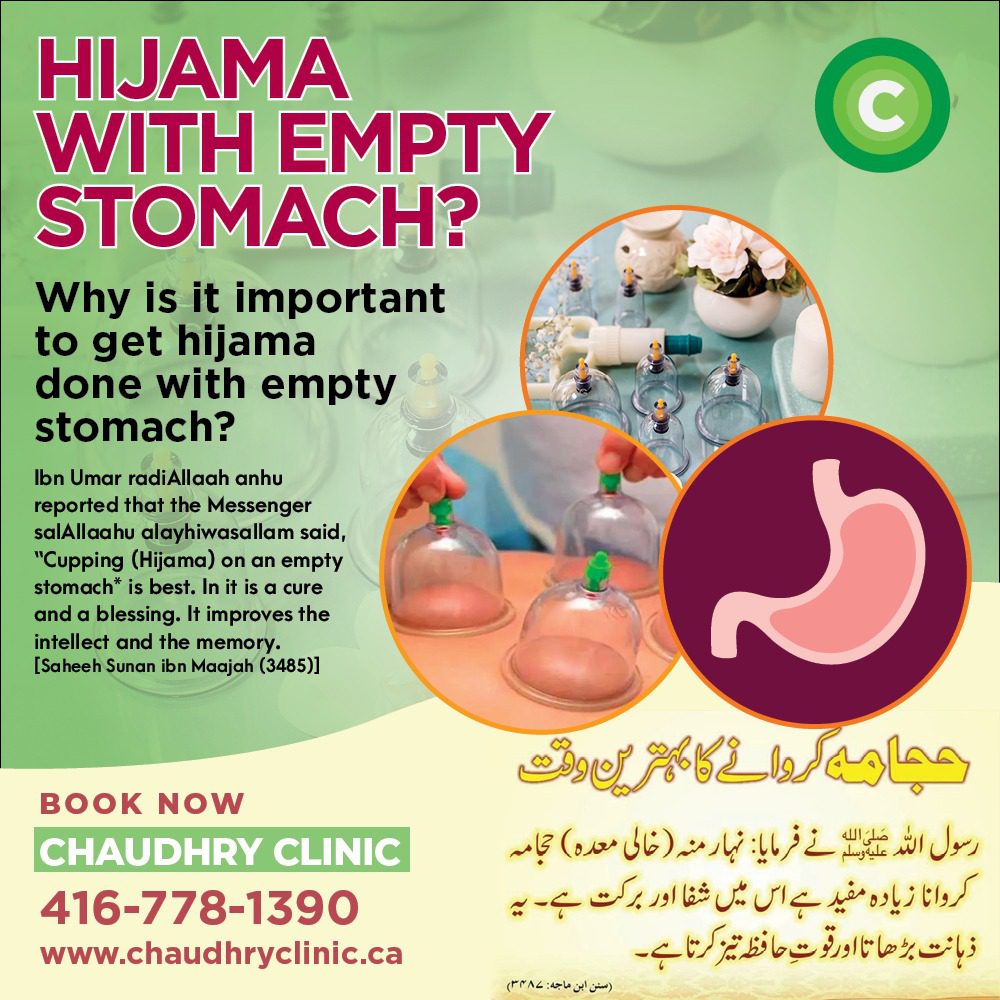Phone Number
+1416-778-1390
Our Location
2155 Lawrence Ave East Toronto M1R 5G9
Our Location
1217 Barnswallow Court Mississauga L5V 2J6
+1416-778-1390
2155 Lawrence Ave East Toronto M1R 5G9
1217 Barnswallow Court Mississauga L5V 2J6
Chaudhry Clinic
July 7, 2005

Hijama, or cupping therapy, has been practiced for centuries as a holistic healing method. As recommended in a hadith narrated by Abdullah ibn Umar, the Prophet Muhammad (peace and blessings be upon him) emphasized that hijama is most effective when performed on an empty stomach. This guidance encourages the integration of physical and spiritual well-being.
Engaging in hijama while fasting enhances its therapeutic effects. The absence of food in the stomach allows for better circulation and toxin removal from the body. This state is believed to amplify the benefits, leading to improved mental clarity, intellect, and memory, as highlighted in the saying that hijama provides cures and blessings. The process facilitates a deeper release of tension and aids the body’s natural detoxification.
In summary, performing hijama on an empty stomach is more than just a recommendation; it is a practice rooted in tradition and spiritual significance. By adhering to this method, individuals can unlock the full potential of this ancient therapy, nurturing both their body and mind. Therefore, consider scheduling your next hijama session while observing a fast to fully embrace its benefits.
For over 50 years, we’ve been committed to safe, holistic wellness that restores balance and supports lifelong health.

Copyright © 2025. All rights reserved.
